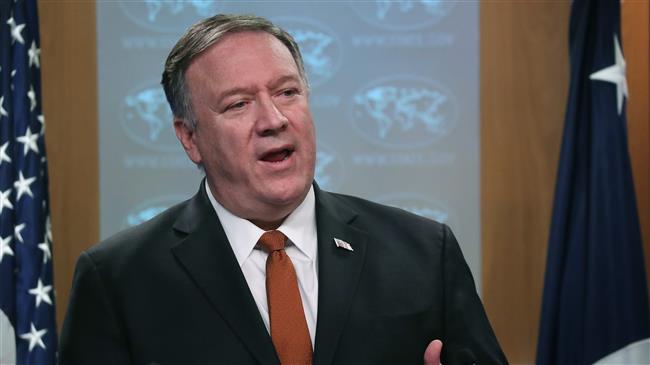Pompeo warns Europe against allowing 'Chinese tech giants' build 5G networks
US Secretary of State Mike Pompeo has warned against European states allowing companies with Chinese links from constructing 5G networks across the continent.
Pompeo made the remarks in an op-ed for Politico published on Monday, where he called on European leaders to "put security first" when it comes to the building of 5G networks.
"5G networks will soon touch every aspect of life, including critical infrastructure,” Pompeo wrote. “Innovative new capabilities will power autonomous vehicles, artificial intelligence, smart grids and other groundbreaking technologies. Thanks to the way 5G networks are built, it’s impossible to separate any one part of the network from another."
"With so much on the line, it’s urgent that trustworthy companies build these 21st-century information arteries. Specifically, it’s critical that European countries not give control of their critical infrastructure to Chinese tech giants like Huawei, or ZTE," the secretary continued.
The Trump administration has accused Chinese telecom giant Huawei and its sophisticated 5G technology of spying for the Chinese government, an allegation strongly denied by both the firm and Beijing.
Washington has not yet provided any evidence to support the espionage allegation.
Pompeo wrote, "[Huawei] is implicated in espionage in the Czech Republic, Poland and the Netherlands, has allegedly stolen intellectual property from foreign competitors in Germany, Israel, the United Kingdom and the United States, and is accused of bribery and corrupt practices in countries like Algeria, Belgium and Sierra Leone."

The Chinese company has denied the US accusations and says the concerns are unfounded.
Critics of the US say that its motive in attacking Huawei is not because it is a genuine security threat but because it is a rival in a crucial sector of the world economy in which America has enjoyed supremacy for decades.
Pompeo’s article comes at a sensitive time in US-China relations, as the world’s two largest economies have been locked for almost a year in an escalating trade war.
VIDEO | Yemenis praise the military for its successful operations against Israel
VIDEO | Israel continues to bomb Gaza homes
VIDEO | An insider's view of the country: Meybod City in Yazd
‘All wars have rules. All of those rules have been broken’ by Israel
VIDEO | Report flags India’s violation of rights of Rohingya detainees
Turkey's foreign minister meets Syria's de facto leader in Damascus
VIDEO | US Syria plots
'Next to impossible' to rescue patients from Gaza's Kamal Adwan Hospital: Director










 This makes it easy to access the Press TV website
This makes it easy to access the Press TV website